- Home
- Melissa de la Cruz
Girls Who Like Boys Who Like Boys Page 25
Girls Who Like Boys Who Like Boys Read online
Page 25
I pretend to be crestfallen.
Cathy pipes up and takes Fanny’s hand. “Well, didn’t Papa always say it was The First Barbra Streisand Album?”
Fanny looks very serious. “No, I think it was The Second Barbra Streisand Album.”
“No,” Cathy says adamantly. “Definitely it was The Third Barbra Streisand Album.”
And then at the same moment, they both crack up.
Cathy spoons some melted ice cream to her lips, in near hysterics. Fanny joins her, practically snorting ice cream from her nose. I watch the two women I love most in my life, my heart full to bursting, and I begin to laugh, too. I laugh so hard that I feel tears streaming down my face.
LIKE FATHER, LIKE DAUGHTER
Abigail Garner
The producer retrieved me from the greenroom at 6:14 A.M. and told me I’d be on after the next commercial break. After a week of nonstop interviews on my book tour for Families Like Mine: Children of Gay Parents Tell It Like It Is in 2004, I knew the routine, so I headed to the main set. I assumed that like all the other morning shows, they would want me sitting with the hosts on the comfy couches. The hosts would sip from their call-lettered mugs as we all tried to act casual while they asked me questions for three to five minutes about growing up with gay parents. This time, however, the producer stopped me just a few steps out of the greenroom and redirected me to where she wanted me to sit: at a news desk in the back of the studio, set up for a split-screen interview.
I waited for the punch line, but when she didn’t offer one, I summarized her plan to make sure I wasn’t missing something: “Even though I’m physically here in San Francisco, just yards away from the main set, you want it to look like I’m somewhere else, beamed in via satellite?”
She nodded. “That’s our format for hard news.”
My book? Hard news? Heterosexual female raised by homosexuals. Story at eleven.
She wasn’t kidding and I didn’t have time to argue. I climbed onto the swivel stool and waited for my cue. Getting interviewed by media in the Bay Area, home of a comparatively large number of queer-parented families, I secretly wished for some new and insightful questions, especially since seconds earlier I had been upgraded from opinionated author to hard-news correspondent. But the questions they chose were ones I had heard before verbatim, because I had written them myself for the press kit distributed by HarperCollins.
When the segment ended and the show cut to commercial, I slid off the swivel stool and began untangling myself from the earpiece and clip-on microphone. I heard quick, determined footsteps coming my way. When I looked up, I saw one of the on-air hosts heading right toward me. I had not seen his face before, but the suit and the thick fake tan makeup were big tip-offs. “Okay,” he started, trying to catch his breath, “I’ve got less than two minutes, but I have to know: Was it weird?”
“Was what weird?” I asked, giving him and his intrusive question the benefit of the doubt. Maybe he wasn’t asking if it was weird having gay parents. Maybe he was asking if it was weird having to be wide awake at six in the morning. Maybe he was asking if it was weird hearing a producer call my life “hard news.”
“Your…family,” he emphasized, as in, what else could I be talking about? “My wife,” he continued breathlessly, “she’s very conservative. Very religious. Not like me. So when I saw your story on the news last night I said, ‘please honey, you have to watch this.”’
He was referring to a report that aired the previous evening on ABC’s World News Tonight covering my book and my advocacy on behalf of people with gay parents. The footage included me giving a college lecture, speaking at a rally, signing books, and having dinner with my father and his partner.
The morning-show host continued, “I wanted my wife to watch because I thought it would open her mind, you know? So we were watching you last night and I was thinking, this is normal, I can handle this, but then I saw you at the dinner table and…” He gave his best faux-shocked expression: jaw dropped, eyes widened, and he stepped back with his hands behind him to catch his fall against the wall. “Two dads at the dinner table! It looked weird. It did! Was it weird for you? Because it looked weird.”
Realizing my time was limited—he had less than sixty seconds before he had to return to the set—I made a point to touch him on the arm as I told him, “It didn’t seem weird to me because it is what I have always known. What mattered most was that I felt loved.”
What I really wanted to say was Don’t start with me about what looks weird. You’re the one in a business suit and full makeup.
Variations on the question “Was it weird?” have saturated my life to the point that I don’t know what it’s like to not be asked such questions.
“What was it like?”
“How did you find out?”
“How did it affect your sexuality?”
Personal questions like these started when I was so young, I lack perspective about what questions are inappropriate for people to ask. Interrogations about my sexual orientation started when I was in fourth grade: “Your dad is gay? That must mean you are gay, too!”
I heard it enough to wonder if everybody else saw something in me that I did not. Was I gay? I didn’t think so. Then again, I knew men who came out when they were thirty, forty, and fifty years old. What if I really were gay, but in deep, deep denial? The constant questions forced me to scrutinize my own sexuality and build a level of self-awareness that most nine-year-olds don’t have.
I’m in my thirties now, but the presumption remains that my own sexuality is fair game for anyone to ask about, and that everyone is entitled to judge my father based on how I turned out.
Having a father come out as gay certainly did influence my sexuality, but not in the way most people assume. I grew up in a community that included my father’s family of choice: a circle of gay men who expanded my me-centered universe with creativity, warmth, and vibrancy. Although many of them did not survive the AIDS epidemic, their influence has followed me into my adult life. Most notably, as my attraction to men began to emerge, I gained my first subconscious lessons of how to respect, appreciate, and love men by observing how gay men respect, appreciate, and love one another. Nowadays I regularly find myself smiling at a man in his twenties or thirties and enjoying the distinct gay male energy he emanates, even if he doesn’t notice me. Sometimes a gay man’s eyes will meet mine when I’m checking him out and he will give me a look of pity or annoyance, as if to say, “Oh, you clueless girl, get your gaydar fixed.”
Little does he know, my gaydar is finely tuned. I am not pining over him with my heterosexual desire; I am admiring him with my queer sensibility.
Unlike most blossoming straight girls, I had easy access to the International Male catalog—my coming-of-age lust material. I could regularly find the latest edition of International Male on a side table in my father’s living room of white carpeting and track lighting. It didn’t really occur to me that the magazine was for gay men. I thought it was for men who cared about their appearance. It would be another decade or so before I figured out that those things are usually assumed to be the same thing.
In the late seventies jogging had caught on as the next big exercise fad, and clothes were being designed to keep up with the trend. The shorts for men were light and very, very short. International Male models showed off short-shorts with slits up the side that went nearly up to the waistband. Instead of a seam, the fabric from the front panel and back panel simply overlapped at the hip. The magic was in the overlap, the hint of a peekaboo. With every stride, the slit on the side opened and closed, opened and closed. The models posed both ways in fake frozen running positions. A man’s hip, skin exposed. More than leg, but not quite ass. This tease is where my lust began.
Recently I discovered an unsolicited copy of International Male in my mailbox, addressed specifically to Abigail Garner. I laughed out loud thinking about how the catalog found me again. I suspect that as companies and nonprofits traded or sold
their mailing lists, my consumer profile convinced a computer somewhere that I had promise as a future IM customer. I donate to LGBT and AIDS organizations and I subscribe to Out and The Advocate. I have been sent sample issues of Instinct, Genre, Details, and Playgirl. Each complimentary copy addressed to me comes with a mass-produced “special invitation” from the editor in chief who points out that we both know I’m not your average man.
Well, no, I’m not.
My first realization that my family was going to be different from other families was the morning after Christmas when I was in kindergarten. My eight-year-old brother and I were settled into an overstuffed chair, sitting side by side to watch our cartoons. Our father came into the room and kneeled down, blocking our view to the TV. He put one hand on one of my knees and his other hand on my brother’s knee. “Kids,” he said, “I’m leaving. I don’t know how long I’ll be gone or if I’m going to come back. Just know that I love you and nothing will change that.”
Sure, okay, I said to myself, but right now, you’re interrupting our cartoon.
When he lived with my mother, my father, a perpetual ticking time bomb, would get angry with me for reasons I couldn’t anticipate or control. Some people might have described him as strict. The word implies that discipline is based on rules being followed or broken. In my dad’s case, his anger would come out even when I thought I was following all of his rules. If you took the standard concept of strict and combined it with emotional distance and unpredictability, you got my dad.
In my eyes, at that age, the more time he was away from the house, the better.
After we heard the front door close, my brother waited for the next commercial break to find Mom, and I followed. She was crying over the kitchen sink. That’s when it hit me that when Dad said he was leaving, he didn’t mean he would be out running errands all day or gone for a week’s vacation. He meant moving out. Despite my mother’s grief, the house instantly felt lighter.
In first grade, I was pulled out of class weekly to go to “Family Change” group. We met in one of those small windowless rooms at the end of a hallway that no one ever has to walk down unless adults are referring to them as “special.” In this group, there was a girl whose house had burned down. Another girl’s dad had just died. A boy’s grandma was moving to a nursing home. I couldn’t figure out my place in this group. Sure, my dad had moved out of the house, but that was good news for me. He was happily living with his partner, Russ, and as a result he was much kinder to me. This new version of my dad was so different; he kept surprising me when he didn’t seem bothered by things that used to make him blow up. When I handed him a note from school that I was certain would make him explode, my newly mellow father read it and stunned me by responding in his most soothing voice, “We’ll take care of this. Don’t feel bad. Lots of children get lice.”
Finally, I knew what a fun, supportive dad was supposed to be. So why did they put me in a support group with kids who were dealing with bad things that were happening to them?
I was there, I learned, to talk about the divorce. A lot of help that would be, considering that the reason why my parents had split up was “private.”
“We can talk about it with each other and with some of our close friends who know and understand,” my mother told me.
From that point forward, I divided my world into two parts: safe and unsafe, gay and not gay. Family Change group was definitely not a safe place where I would be speaking up.
From the day my dad moved out until the day I left for college, every “coming out” about my family was a monumental event. Each time, I would prepare myself, certain that I could be casual and calm about it. But my thoughts ran through every reaction I had ever witnessed, plus a few reactions that only existed in my mind. The ever-present imaginary faces of ridicule came at me like a 3-D nightmare: What?! Your dad is a fag?
Every report of gay bashing terrified me, wondering when it would be our turn. I worried that I might accidentally put my dad in harm’s way, innocently disclosing too much information to a well-disguised nutcase with an axe to grind and a tire iron behind his back.
Even when I was almost certain someone was safe to tell, my eyes would start to well up and I’d tremble uncontrollably before I could finish my first sentence. My worries about how my tears and trembling would be judged set off a spiral of irrational internal dialogue, only accelerating my panic: They are going to think I have “issues.” They will think: What do you expect, really…she’s so ashamed of what her father is subjecting her to, she can’t even speak coherently….
My tears were not of shame, but of fear and anger. My tears told the story: I hate that it took me so much energy to hide something I should not have to hide. I hate that I don’t trust you until you will go out of your way to prove to me otherwise. I hate that I can’t explain to my parents that not wanting to talk about this is not because I am embarrassed. I hate that when my tears flow, the people who see those tears have no inkling of the meaning behind them, and that instead all they see is a girl with issues. A girl who is messed up because her dad is gay.
It was only the anonymity of college in another part of the country that allowed me to practice talking about my family in the same casual way other people talked about theirs.
The summer after college graduation was the first time I attended a Gay Pride event. I had just started dating a man who was staffing one of the vendor booths at the Twin Cities Pride Festival, and I wandered into the park to say hello and to see for myself this legendary gathering I had only heard about. Later, when I told Dad and Russ I had been to Pride, Dad crinkled his nose and said, “That’s not what we’re about.” It would be another three years before I chose to join PFLAG in the Pride Parade. Dad and Russ came to check out Pride for themselves the year after that.
Sometimes I forget how much our perspectives have deviated as I have plunged into queer activism and my father and his partner now move within a circle of mostly straight friends. Our differences clash on issues of identity politics, how “out” we are, and how we use language and humor to express ourselves. When I cross that line between our differences, I recoil and vow to rein in my too-queer ways.
That is, until I forget and slip up again.
Recently Russ was unwrapping a large box that had just been delivered. As he hunted for a knife to open it, he told me he had ordered a lawn sprinkler.
When he pulled it out of the bubble wrap, I saw this wasn’t just any sprinkler. It was a copper pipe bent into the outline of a swan. When you attached it to the garden hose, it spun around and made a fancy watering display. When you turned it off, you could simply leave it outside as a decorative lawn sculpture.
Russ held it up and asked me what I thought. I envisioned it in their front yard, a yard that is really more of an all-out landscaping-palooza, complete with specially delivered boulders, a meandering walkway, and after sunset, flattering mood lighting for the shrubs. It’s a front lawn that gets everybody’s attention, particularly older women strolling by who “simply must know what kind of hostas those are.”
Rather than putting so much effort into creating a front lawn that announces to every passerby that they are gay, it would have been a lot cheaper to put up a lawn sign with the words: “Homosexuals live here.”
Staring at the copper swan, I said, more to myself than to Russ, “Wow. That’s pretty gay.”
“It’s not gay,” he grumbled.
Dad called me into the kitchen and a few minutes later he looked into the living room where Russ was still rearranging bubble wrap.
“Russ, what are you doing?” Dad asked.
“Packing it up and sending it back,” Russ replied. “Abigail says it’s faggy.”
“I did not say it’s faggy. I said it was gay.”
The swan never made it to the yard.
In 2003, when ABC launched It’s All Relative, a comedy about a college-aged daughter with two gay dads, The Advocate called it “groundbreaking.”
/>
Russ declared, “It’s just a sitcom.”
Despite Russ’s preshow judgment, he and Dad had me over for the series premiere. For this special event, the TV joined us at the dinner table. Finally: We were allowed to laugh. Together, and at ourselves.
For once, a couple on TV really was gay, and I didn’t have to rewrite supposed platonic relationships between characters in my head. As a teen watching sitcoms like My Two Dads and Kate and Allie, I pretended the parents on those shows were using roommate as a code word with a wink.
After the show Dad brought out a dessert that, like most culinary treats he creates, appeared out of thin air: halved pears baked in butter and cream, sprinkled with cinnamon and sugar. I don’t think it’s a stretch to say that more gay dads than straight dads have mastered the art of cooking with fruit.
We sat around the table dreaming up potential directions for the show that we thought the writers might take. We agreed that it would be a disaster if it leaned too much on stereotypes or if it went the opposite direction and became a weekly public service announcement.
We wondered if, as the show progressed, the portrayal of this gay-dad family would feel authentic, or if it would only come off as stereotypical. The baked glazed fruit dessert in front of me reminded me that in my family, that line between authentic and stereotype is sometimes blurrier than we would like to believe.
Of all the questions I am asked about my family, the one that makes me the most weary is “Don’t you resent the fact that your father is gay?” This question does not even make sense to me. Being gay is inherent to who my father is; to suggest that he should not be gay is to suggest that I should have a different father. Furthermore, if I didn’t have a gay dad, I would not have Russ—another possibility I am unable to entertain.
What I do resent is the expectation that I should resent my father. I resent the rhetoric that denounces him. I resent the people who judge him for coming out, and people who think that my life could have been “easier” if my father “hadn’t been so selfish.” I remember my father when he was in the closet, and being raised by that persona would have been anything but easy.

 Gates of Paradise
Gates of Paradise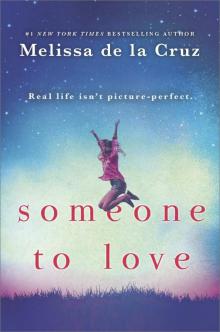 Someone to Love
Someone to Love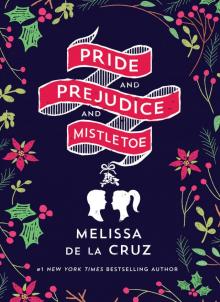 Pride and Prejudice and Mistletoe
Pride and Prejudice and Mistletoe Serpent's Kiss
Serpent's Kiss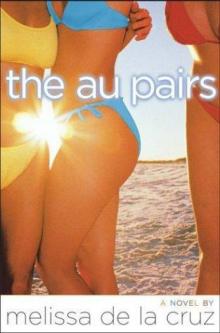 The Au Pairs
The Au Pairs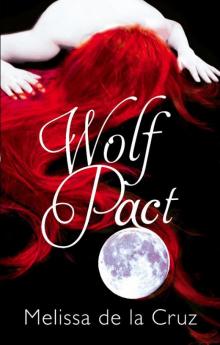 Wolf Pact
Wolf Pact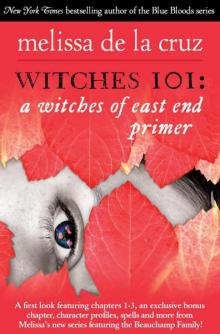 Witches 101: A Witches of East End Primer
Witches 101: A Witches of East End Primer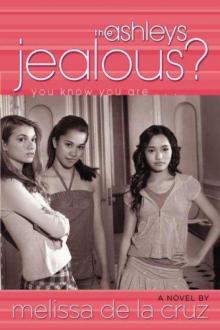 Jealous?
Jealous?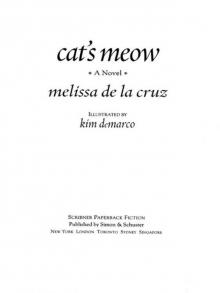 Cat's Meow
Cat's Meow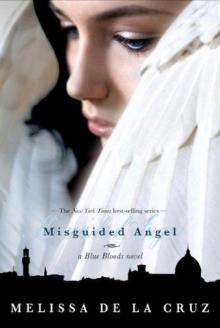 Misguided Angel
Misguided Angel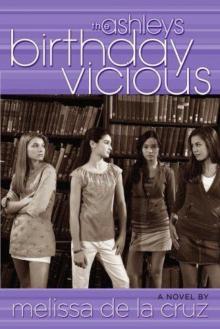 Birthday Vicious
Birthday Vicious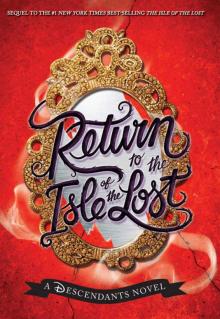 Return to the Isle of the Lost
Return to the Isle of the Lost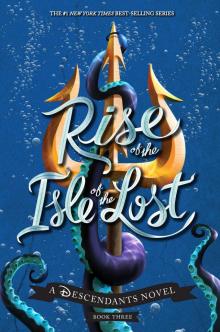 Rise of the Isle of the Lost
Rise of the Isle of the Lost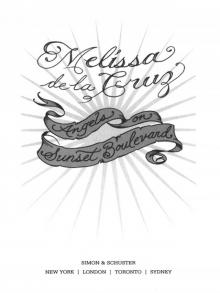 Angels on Sunset Boulevard
Angels on Sunset Boulevard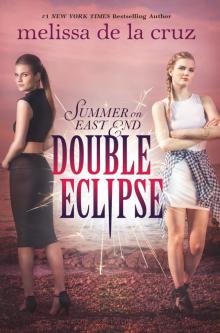 Double Eclipse
Double Eclipse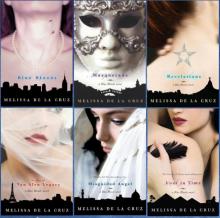 Blue Bloods
Blue Bloods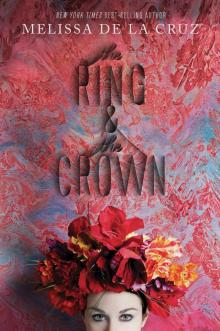 The Ring and the Crown
The Ring and the Crown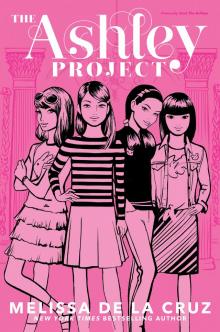 The Ashleys
The Ashleys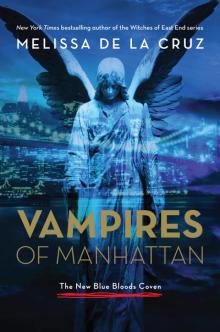 Les vampires de Manhattan
Les vampires de Manhattan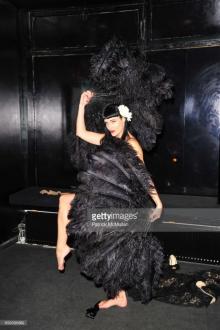 The Van Alen Legacy
The Van Alen Legacy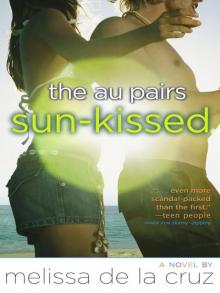 Sun-Kissed
Sun-Kissed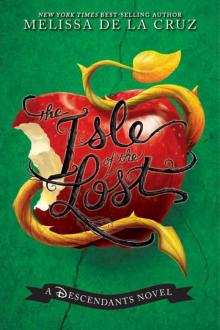 The Isle of the Lost
The Isle of the Lost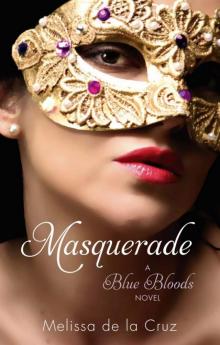 Masquerade
Masquerade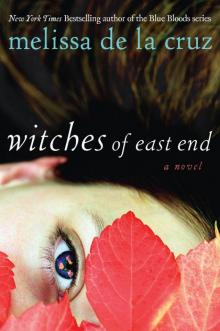 Witches of East End
Witches of East End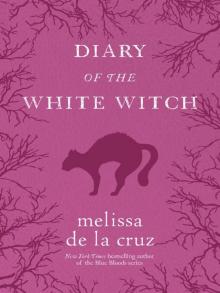 Diary of the White Witch
Diary of the White Witch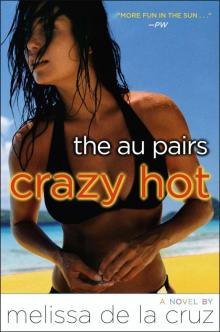 Crazy Hot
Crazy Hot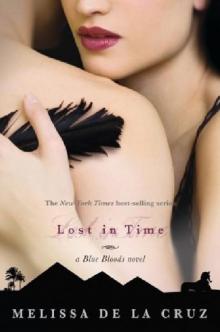 Lost in Time
Lost in Time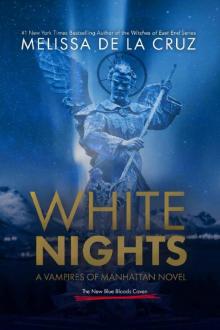 White Nights: A Vampires of Manhattan Novel
White Nights: A Vampires of Manhattan Novel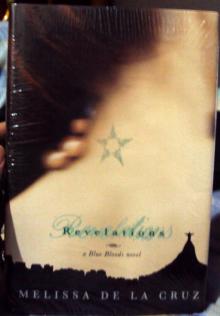 Revelations
Revelations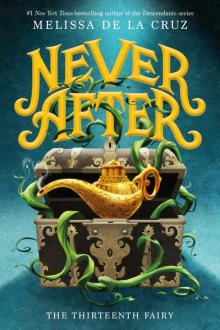 The Thirteenth Fairy
The Thirteenth Fairy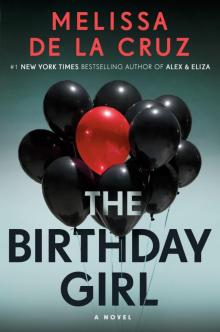 The Birthday Girl
The Birthday Girl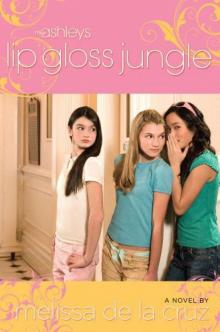 Lip Gloss Jungle
Lip Gloss Jungle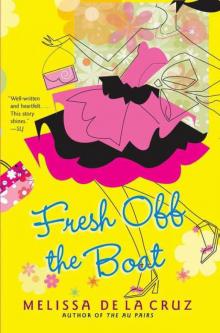 Fresh Off the Boat
Fresh Off the Boat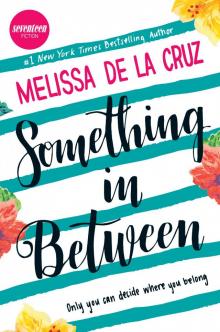 Something in Between
Something in Between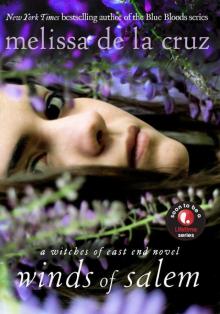 Winds of Salem
Winds of Salem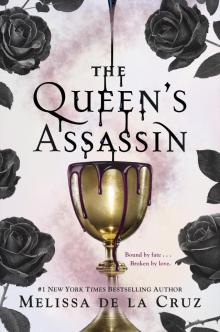 The Queen's Assassin
The Queen's Assassin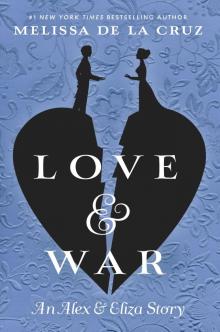 Love & War
Love & War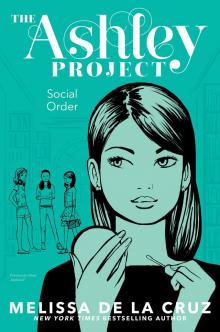 Social Order
Social Order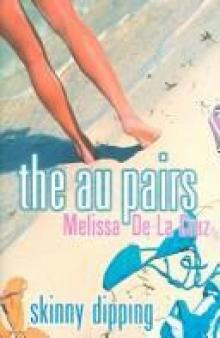 Skinny Dipping
Skinny Dipping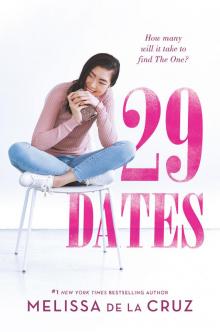 29 Dates
29 Dates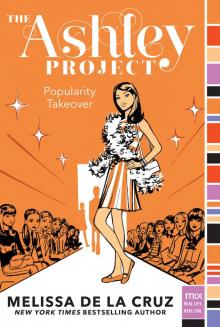 Popularity Takeover
Popularity Takeover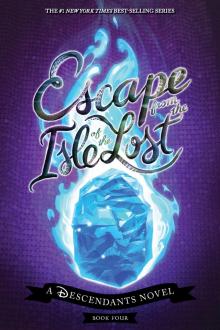 Escape from the Isle of the Lost
Escape from the Isle of the Lost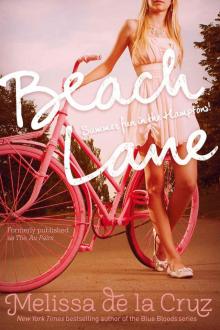 Beach Lane
Beach Lane Bloody Valentine
Bloody Valentine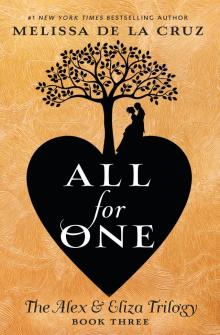 All for One
All for One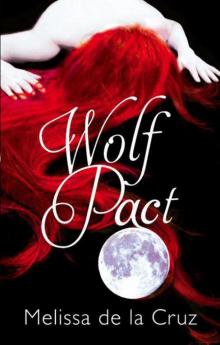 Wolf Pact: A Wolf Pact Novel
Wolf Pact: A Wolf Pact Novel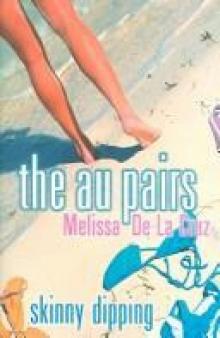 The au pairs skinny-dipping
The au pairs skinny-dipping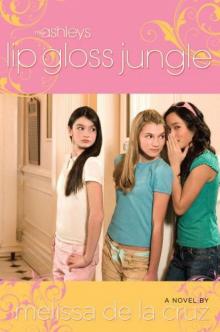 Lip Gloss Jungle (Ashleys)
Lip Gloss Jungle (Ashleys)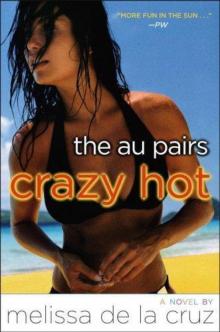 Crazy Hot (Au Pairs)
Crazy Hot (Au Pairs)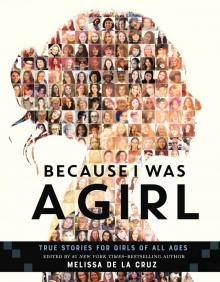 Because I Was a Girl
Because I Was a Girl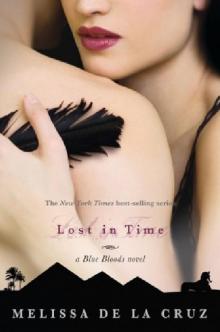 Blue Bloods 6 - Lost in Time
Blue Bloods 6 - Lost in Time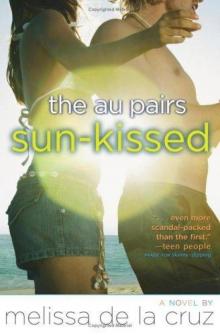 Sun-kissed (Au Pairs, The)
Sun-kissed (Au Pairs, The)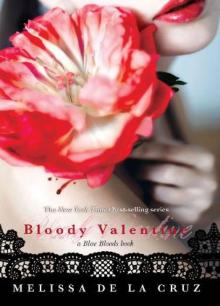 Bloody Valentine bb-6
Bloody Valentine bb-6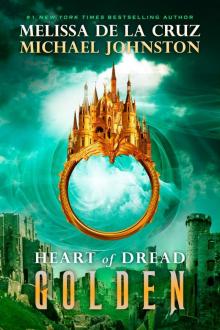 Golden
Golden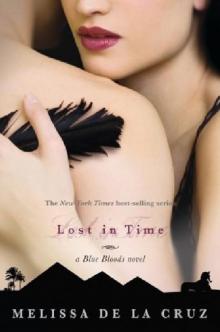 Lost in Time_A Blue Bloods Novella
Lost in Time_A Blue Bloods Novella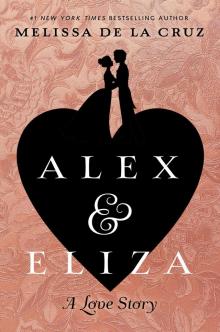 Alex and Eliza--A Love Story
Alex and Eliza--A Love Story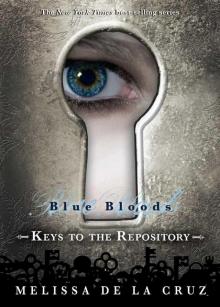 Blue Bloods: Keys to the Repository
Blue Bloods: Keys to the Repository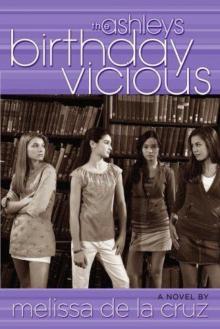 Birthday Vicious (The Ashleys, Book 3)
Birthday Vicious (The Ashleys, Book 3)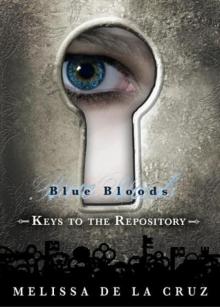 Keys to the Repository
Keys to the Repository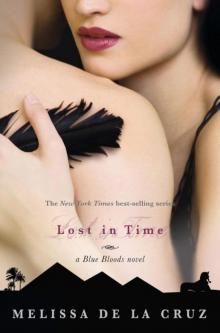 Lost In Time (Blue Bloods Novel)
Lost In Time (Blue Bloods Novel) Stolen
Stolen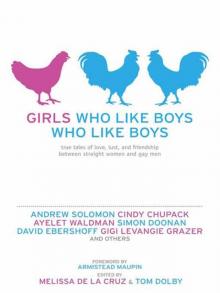 Girls Who Like Boys Who Like Boys
Girls Who Like Boys Who Like Boys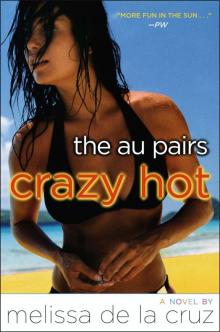 the au pairs crazy hot
the au pairs crazy hot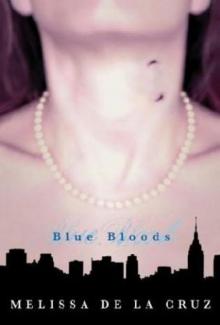 Blue Bloods bb-1
Blue Bloods bb-1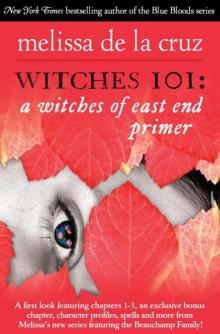 Witches 101
Witches 101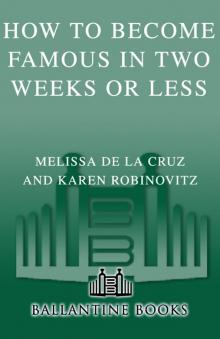 How to Become Famous in Two Weeks or Less
How to Become Famous in Two Weeks or Less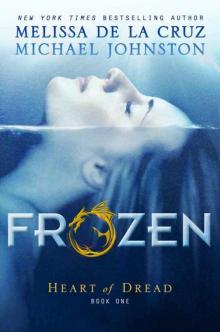 Frozen hod-1
Frozen hod-1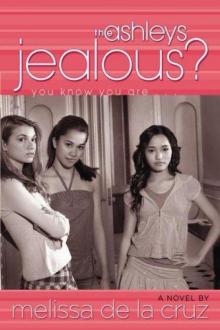 Jealous? (The Ashleys, Book 2)
Jealous? (The Ashleys, Book 2)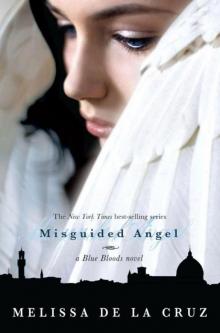 Misguided Angel (Blue Bloods)
Misguided Angel (Blue Bloods)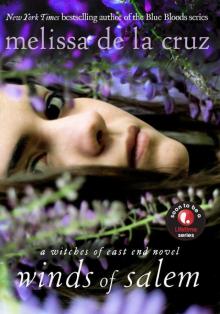 Winds of Salem: A Witches of East End Novel
Winds of Salem: A Witches of East End Novel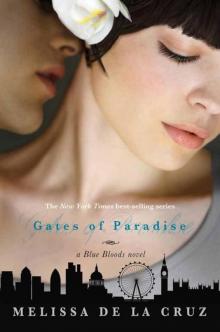 The Gates of Paradise
The Gates of Paradise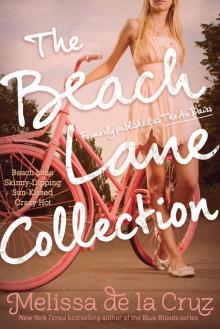 Beach Lane Collection
Beach Lane Collection Wolf Pact, The Complete Saga
Wolf Pact, The Complete Saga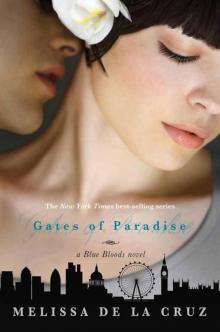 Gates of Paradise, The (Blue Bloods Novel)
Gates of Paradise, The (Blue Bloods Novel)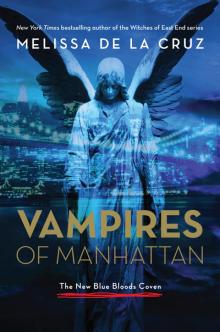 Vampires of Manhattan
Vampires of Manhattan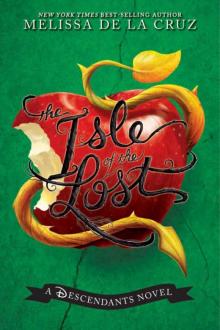 Isle of the Lost
Isle of the Lost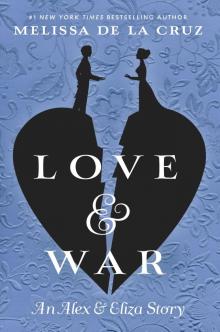 Love & War_An Alex & Eliza Story
Love & War_An Alex & Eliza Story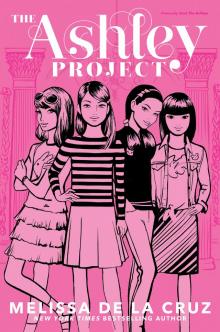 The Ashley Project
The Ashley Project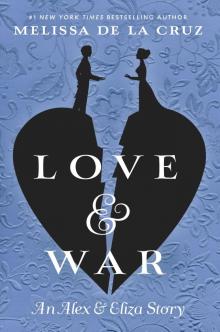 Love & War--An Alex & Eliza Story
Love & War--An Alex & Eliza Story